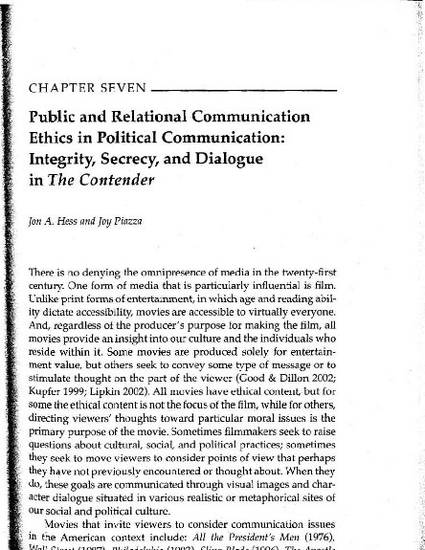
There is no denying the omnipresence of media in the twenty-first century. One form of media that is particularly influential is film. Unlike print forms of entertainment, in which age and reading ability dictate accessibility, movies are accessible to virtually everyone. And, regardless of the producer's purpose for making the film, all movies provide an insight into our culture and the individuals who reside within it. Some movies are produced solely for entertainment value, but others seek to convey some type of message or to stimulate thought on the part of the viewer (Good & Dillon 2002; Kupfer 1999; Lipkin 2002). All movies have ethical content, but for some the ethical content is not the focus of the film, while for others, directing viewers’ thoughts toward particular moral issues is the primary purpose of the movie. Sometimes filmmakers seek to raise questions about cultural, social, and political practices; sometimes they seek to move viewers to consider points of view that perhaps they have not previously encountered or thought about. When they do, these goals are communicated through visual images and character dialogue situated in various realistic or metaphorical sites of our social and political culture.
Movies that invite viewers to consider communication issues in the American context include: All the President’s Men (1976), Wall Street (1987), Philadelphia (1993), Sling Blade (1996), The Apostle (1997), The Truman Show (1998), The Contender (2000), Artificial Intelligence (2001), and Chicago (2002). Each of these films, in its own way, depicts powerful social and interpersonal communication issues. Because these films are a form of mass speech and expose large numbers of people to their messages, it is important to consider what they have to say about communication ethics.
Available at: http://works.bepress.com/jon_hess/7/

Permission documentation is on file.